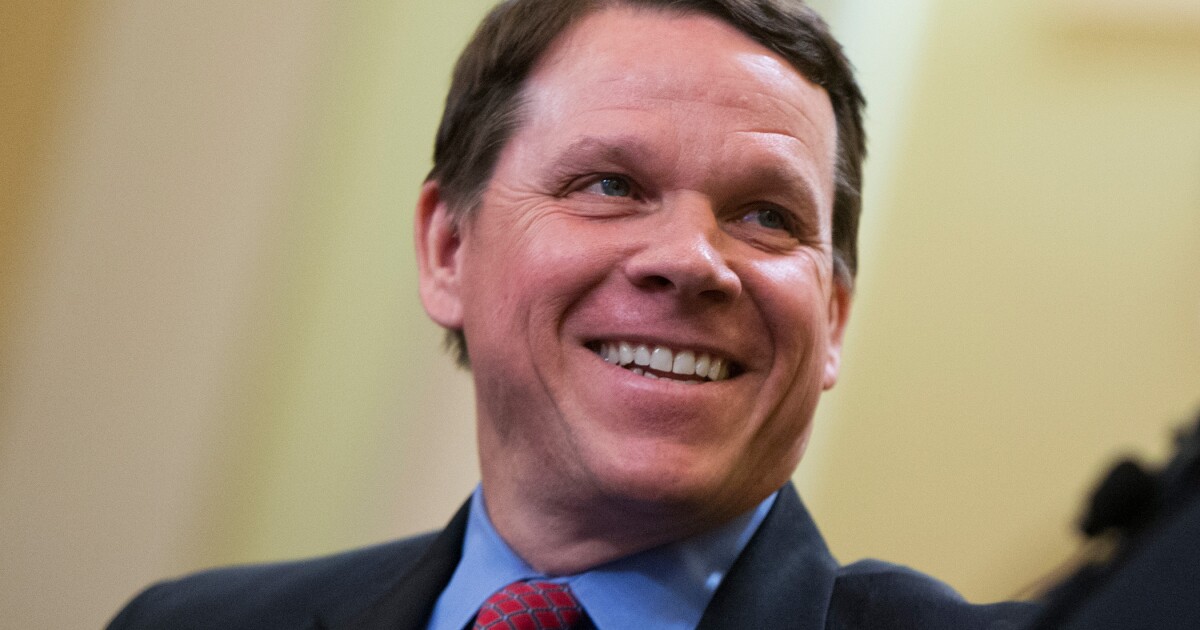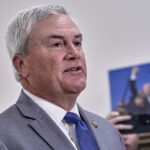

After the dust settled from the 2022 midterm elections, the incoming, narrow Republican majority in the House of Representatives began to talk about what next year ought to bring.
Transportation is one key realm for change. After all, House Committee on Transportation and Infrastructure Chairman Peter DeFazio (D-OR), who is retiring after 36 years in Congress, tended either to support President Joe Biden’s administration on transportation issues or tried to push them to the left. For instance, DeFazio, in August, backed the Freight Rail Shipping Fair Market Act to “hold the freight rail industry accountable” and give the Surface Transportation Board regulatory agency more money and power to push back against “consolidation and Wall Street pressures.”
REPUBLICANS ‘PROFOUNDLY CONCERNED’ FOR PUBLIC SAFETY AFTER BIDEN PULLS AIR MARSHALS FROM FLIGHTS
Rep. Sam Graves (MO), the ranking Republican member on the House Committee on Transportation and Infrastructure, and its presumptive chairman in the 118th Congress, is going to mean less support for the Biden administration. And according to the office of Graves, first elected to the House in 2000 and representing the northern Missouri 6th Congressional District, there will be considerably more oversight of the executive branch.
“Oversight of the administration will be a priority, particularly of how the Infrastructure Investment and Jobs Act is being implemented and how those dollars are being spent,” a spokesperson for Graves told the Washington Examiner about the incoming committee chairman’s approach to a signature Biden administration domestic achievement, the $1 trillion infrastructure law enacted in November 2021, which supporters say is pouring billions into the nation’s roads, ports, and power lines.
“That’s a massive amount of spending, so preventing waste, fraud, and abuse will be a focus,” the Graves spokesman said. “There are some important pieces of transportation legislation that Congress must consider, including a major bill to fund the FAA’s aviation safety and infrastructure programs and to make aviation policy changes. Graves intends to work in a bipartisan manner to pass that bill, as well as bills to address federal pipeline safety programs, fund the U.S. Coast Guard, and improve the nation’s water resources infrastructure, such as ports and navigation, locks and dams, and flood protection.”
Graves voted against the Infrastructure Investment and Jobs Act, as did most House Republicans in the then-Democratic majority chamber.
Graves, who won reelection most recently with 70% of the vote, has a House voting record that is seen as conservative — perhaps increasingly so. Heritage Action for America’s index gives him a lifetime score of 68% but a most recent session score of 87%, only 2% below the average House Republican. The National Taxpayers Union gives him a 74% ranking for 2021, again 2% lower than the House GOP average.
The Missouri congressman has a history of backing significant infrastructure spending, but he balked at many of the things that House Democrats and the Biden administration were pushing.
For instance, Graves wrote a Washington Times op-ed against the Green New Deal in 2019. It began: “Have you ever read a news story and asked yourself, ‘Is this for real?’ I had that experience when I recently read that a major proponent of the Green New Deal said she woke up in the middle of the night with anxiety about climate change.”
Graves referred to “one study” that pegged the price tag of the Green New Deal legislation at “$93 trillion over the next 10 years,” or $600,000 per “average American household.” He dismissed it out of hand. “At that price, this certainly isn’t a deal, it’s a disaster,” Graves warned.
Marc Scribner, a transportation policy analyst for the Reason Foundation, thinks Graves might bring some needed understanding to the table at a key time for part of the transportation sector.
“The biggest impact will be on FAA reauthorization due by the end of September 2023,” Scribner told the Washington Examiner. “Sam Graves is a longtime licensed pilot and will be in an excellent position as chairman of the Transportation and Infrastructure Committee to apply his firsthand aviation knowledge to the multiyear FAA bill.”
CLICK HERE TO READ MORE FROM THE WASHINGTON EXAMINER
Adie Tomer, who leads the Metropolitan Infrastructure Initiative at the Brookings Institution, warns that Graves could overreach as chairman.
“Rep. Graves will lead the committee during a historic moment,” Tomer told the Washington Examiner. “While his conference mostly voted against the Infrastructure Investment and Jobs Act and Inflation Reduction Act, these same colleagues also applaud what they can help build when back home. Mr. Graves will need to resist the urge to defame the bills while still holding states and localities to account for how the money is being spent.”







